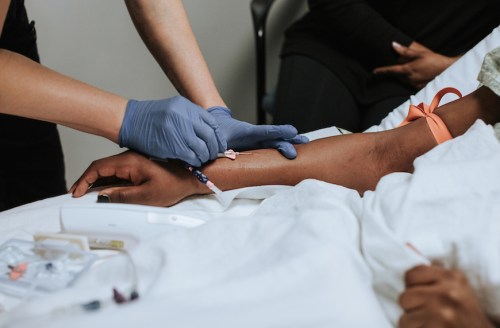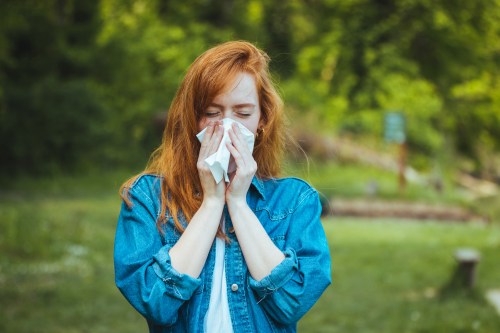It’s not unusual for people to whisper about “good” and “bad” hospitals near their homes. Across the United States, most folks have a vague sense of which hospitals to avoid, but the stakes are often higher for Black people. It’s well-documented that Black people in the U.S. have worse health outcomes: pregnant people, for instance, are three to four times more likely to die from complications related to childbirth than white counterparts, according to data from the Centers for Disease Control and Prevention (CDC). Harrowing statistics and horror stories can make choosing a hospital downright scary, but it’s natural to assume the best hospital can help ensure that you get quality care.
Experts in This Article
Anuj Gangopadhyaya is a senior research associate in the Health Policy Center at the Urban Institute.
As it turns out, a recent study by the Urban Institute analyzed the 2017 discharge data from 2,347 hospitals across 26 states and found disturbing trends. “Black patients systematically experience higher rates of adverse safety events, particularly among injuries or illnesses suffered during or after surgical procedures, relative to white patients treated at the same hospital,” says Anuj Gangopadhyaya, PhD, the study’s lead researcher. This means, in the same exact hospital, Black patients are at greater risk of harm.
To figure out exactly how safe (or unsafe) hospitals are for patients, researchers used 11 Patient Safety Indicators—criteria created by the Agency for Healthcare Research and Quality that pinpoint avoidable events that impact a patient’s health and safety. Within the same hospital, research suggests that Black adult patients were at greater risk of injuries ranging from bedsores to life-threatening conditions like sepsis, whereby the body tries to fight infection by damaging its own tissues. Postoperative hemorrhages, or bleeding after surgery, were also more common. Conditions like pulmonary embolism—which happens when a blood clot gets stuck in an artery of the lung—and deep vein thrombosis, a condition that occurs when a blood clot is lodged in one of the deep veins within the legs, were also more common among Black patients. The research also suggests higher rates of respiratory failure and acute kidney injury that requires dialysis.
What’s more? Having insurance coverage didn’t make Black patient safety outcomes better. Researchers expected the gap in poorer outcomes to narrow when analyzing data from Black and white patients receiving Medicaid, but there was no substantial change. “This suggests that potentially discriminatory practices pervade both hospital systems and providers,” Gangopadhyaya says. And while medical racism and discrimination put individuals in danger, it has broader implications. “In the long-term, it erodes the trust that patients place in their doctors and the healthcare system,” Gangopadhyaya says.
Recent public conversations about Black folks and vaccine hesitancy often pinpoint the Tuskegee Syphilis Experiment (whereby hundreds of Black men were deliberately left untreated for syphilis for 40 years) as a potential culprit. The experiment might be a factor for some, but modern-day experiences of unfair treatment and harm are top of mind. Well+Good previously reported that research from 2005 suggests that Black people distrust the healthcare system because they have solid evidence from their own lives. This new Urban Institute study quantifies a lived experience all too familiar for Black people seeking quality medical care.
Yes, patient safety outcomes are just one example of the ways white supremacy affects Black folks and other people of color, but Gangopadhyaya says that narrowing the inequities within healthcare is vital. Recommendations proposed within the study include: mandating implicit and explicit bias training so that healthcare workers understand how biases can impact care. Additionally, the researchers advocate for strict adherence to clinical guidelines across patients, with an auditing process that allows hospitals to assess performance.
Gangopadhyaya also says insurance companies need to look into why Black clients with the same benefits as their white clients are receiving different standards of care. “Resources must be focused on not just ensuring that disadvantaged minority patients are able to access high-quality hospitals, but also to ensure that high-quality hospitals provide standardized care among their patient populations,” he says.
Finally, Gangopadhyaya’s team called out the need for patients to know how to file complaints and push back against unfair treatment. They mention that the Centers for Medicare and Medicaid Services does require hospitals to inform all patients of their rights, including the right to openly express concerns and grievances about the treatment they’re getting. While Black people should never have to carry the burden of saving their own lives, learning how to advocate for oneself and fight unfair treatment might help the push for more systemic change continues.
Sign Up for Our Daily Newsletter
Get all the latest in wellness, trends, food, fitness, beauty, and more delivered right to your inbox.
Got it, you've been added to our email list.











